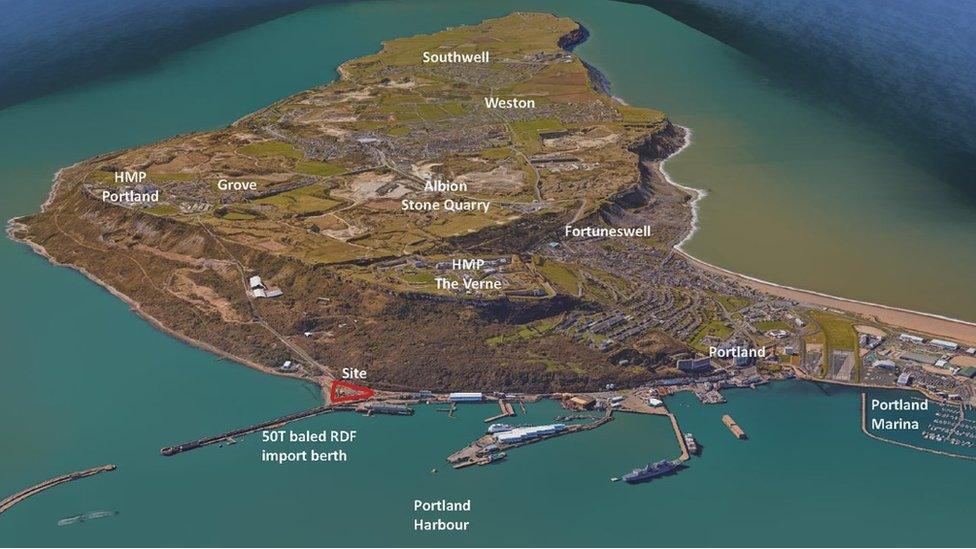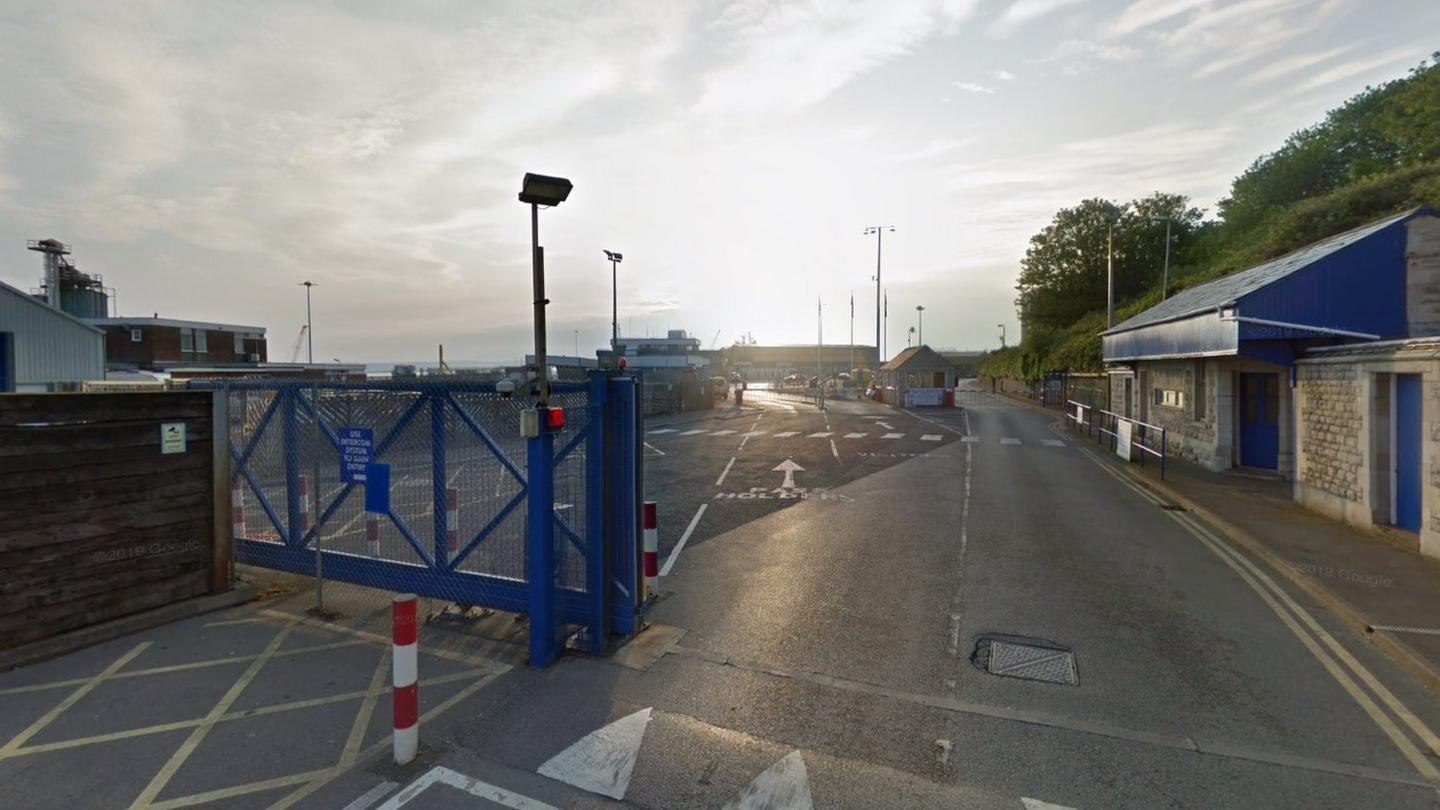Portland Port energy plant 'would be blot on landscape'
- Published

The power plant would be built within Portland Port
A planned energy plant powered by rubbish would be a "big, unsightly blot" on the landscape, campaigners have claimed.
Development company Powerfuel Portland has proposed the £100m energy recovery facility (ERF) in Portland, Dorset.
Campaign group Stop Portland Waste Incinerator (SPWI) has also raised traffic and health concerns.
Powerfuel Portland said it would be built on a brownfield site which already has consent for a power plant.
It added it would use locally produced refuse to power about 30,000 homes.
SPWI said the incinerator would "create a big, unsightly blot on our beautiful landscape and coast" and "bring more lorries thundering along our busy roads".

Powerfuel Portland said the facility would create 350 construction jobs and 30 permanent jobs
A petition against the plans has garnered more than 4,600 signatures - with one saying it was "not the right place to build an eyesore" and another saying "the road system is not adequate".
The planned site is on the north-eastern corner of Portland on land owned by Portland Port, and has planning consent for an energy plant, which would have used either vegetable oil or waste rubber crumb from tyres, Powerfuel Portland said.
It added the new facility would have a smaller footprint, could process 180,000 tonnes of "low carbon and partially renewable" fuel a year, as well as creating 350 construction jobs and 30 permanent jobs.
Powerfuel Portland director Giles Frampton said Portland Beach Road - the only road between Weymouth and Portland - had a daily two-way traffic flow of 17,500 vehicles.
He said "at most" the facility would generate an additional 80 vehicle movements, from 40 lorries, each day, which "forms only 0.4% of daily traffic flow, a very marginal impact".
- Published20 November 2019
